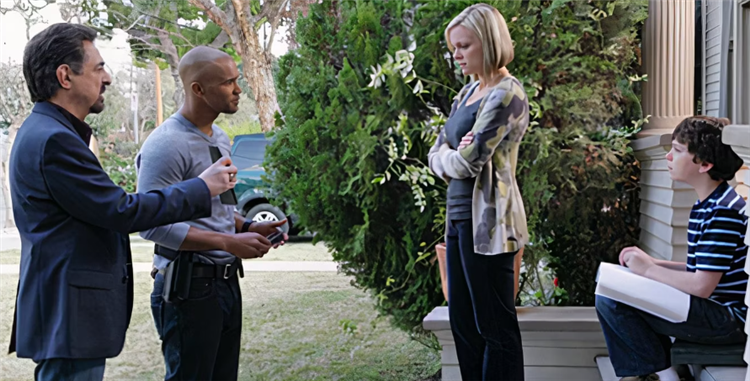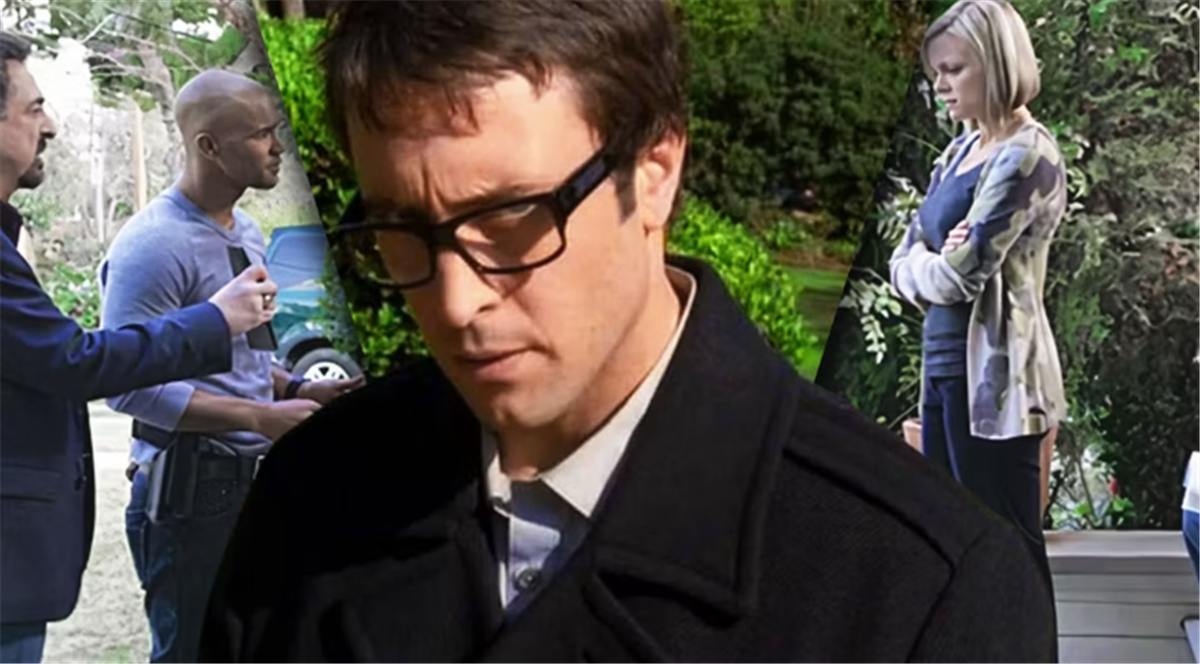Criminal Minds is arguably one of the most successful crime dramas in television history, amassing around 12.63 million viewers in its first season alone. Many viewers were attracted to this show because it does a fantastic job of drawing attention to the perpetrator’s psyche. This show doesn’t waste time dragging out complex cases or focusing too much on the politics of a police department but instead showcases a small team of experts. Thus, this franchise manages to push away from the typical motifs of a crime drama and zoom in on the most integral part.
With so many episodes in its portfolio, it can be hard for fans to pick just one memorable moment. Yet, for many long-time viewers, one episode, while not the best of Criminal Minds, in particular, still tugs on their heartstrings in the most morbid way possible. “The Big Wheel” introduces us to an array of complex characters, ensuring that viewers can remain on the edge of their seats right till the very end. But the episode has also remained one of the most devastating in the whole series.
Vincent Rowlings Is the Type of Unsub That Helps Criminal Minds Thrive
- Although it’s emphasized for the purpose of the show, the Behavioral Analysis Unit is actually a part of the FBI.
- The Criminal Minds franchise released two video games in 2012 and 2018, respectively.
- The franchise also has a pair of spin-offs called Criminal Minds: Suspect Behavior and Criminal Minds: Beyond Borders.
Season 4, Episode 22, “The Big Wheel,” introduces fans to Vincent Rowlings, a seemingly normal man in his 30s. Yet, when videotapes of his latest murders are sent over to the BAU, the audience discovers that he’s crying out for help. Instead of writing a letter to the team, he simply writes “HELP ME” on a whiteboard. Thus, at first, the audience isn’t sure if the message is from the criminal or the recently murdered victim. This episode is incredibly thrilling as it follows a seemingly normal man who films his crimes via his glasses and begs the team to help him control his compulsions. As such, this is a fantastic way for the team at the BAU to delve deeper into this man’s inner mental state, as they don’t have to waste too much time figuring out the details behind the crime. Plus, since the audience understands that this man is not murdering women out of malice but instead because he feels that he has no other option, they immediately feel some sort of sympathy for him. Of course, this creates a whole host of moral predicaments for the viewer as they are forced to push down their natural empathetic feelings and come to terms with the disturbing acts that this character has committed.
Another compelling aspect of this unsub that turn chilling is that he has OCD. This is evident in his compulsive behavior, such as opening his fridge a certain way and cutting small sections off of a sandwich before eating it. Although OCD is not necessarily a mental disorder that’s commonly associated with violent criminals, it’s one that the audience instantly recognizes and understands. So, the viewer quickly becomes aware that Rowlings is suffering from a common mental disorder and doesn’t have to try and wrap their heads around some obscure neurological condition. Plus, OCD is quite diverse, so it gives writers a chance to showcase a wealth of unique traits without the character coming across as odd or excessively stereotypical. In turn, this is a great example of how Criminal Minds follows the first rule of screenwriting; “Show, Don’t Tell.” Instead of allowing the BAU to do all the explaining, the writers use the criminal’s actions to display their true motives, meaning that viewers can keep up with the plot and don’t feel as if they’re missing out on something really important.
The Suspect’s Glasses Give This Episode an Unexpected Touch

- During the pandemic, the cast of Criminal Minds created a group chat so that they could stay in touch.
- A.J. Cook, who plays JJ, was diagnosed as legally blind at just age 7.
- Unsurprisingly, real BAU teams don’t fly on private jets.
One of the biggest twists in this episode revolves around Vincent’s glasses. All the videotapes that the BAU receives are shot in first-person POV, meaning that they have no idea what the unsub looks like. As such, Morgan uncovers the fact that Rowlings has a secret camera hidden in his glasses, which he had been using to record footage of his murders. This is incredibly unsettling and suggests that the last thing these women see before they die is Vincent filming them through his inconspicuous lenses. Yet, although this contraption turns the episode into a horror show, many viewers can’t help but wonder how he managed to create such a device. Thus, this gives the criminal an added edge and ensures that the audience is engrossed in their own morbid curiosity. In turn, this episode manages to transform an ordinary object, such as a pair of eyeglasses, into a perverted tool.
The fact that Victor shoots his crimes in this way ensures that his identity cannot be revealed. However, he uses written messages to showcase that he needs help. In turn, this creates a complex contrast that, again, causes the audience to feel sorry for him. Though many audience members feel wrong about showing this man empathy, it’s almost unstoppable as he’s showing a very vulnerable side to himself, which is something every viewer can relate to in some way or another. It almost appears that someone else is controlling him, making his condition seem much more excessive and debilitating. Although Vincent explicitly claims that he wants to stop hurting innocent women and feels overthrown by his OCD, he still doesn’t want to be named and shamed for his crime. Thus, the audience then begins to wonder if he’s telling the truth or whether he just doesn’t want to be held accountable for his actions. Either way, this causes the audience to question their own beliefs as they are forced to watch both the criminal and the victims suffer.
Vincent’s Relationship With Stanley Gives the Episode a Chilling Sense of Innocence
- Many episodes of Criminal Minds are inspired by real-life cases. For example, Frank Breitkopf was based on notorious serial killer Jeffery Dahmer.
- Famous actress Sydney Sweeney appeared on the show in Season 5 when she was just 12 years old.
- Kirsten Vangness collects a wealth of Penelope’s props, including some of her glasses and her ear-piece.
Despite watching the man murder multiple innocent women, he still has a ton of redeeming qualities. In particular, he shows a lot of consideration for his young neighbor, Stanley Wolcott. The pair go to a local fairground and enjoy some time on the Ferris wheel before Rowlings is arrested by the BAU. Even though Rowlings murdered Stanley’s mom just moments before, the little boy still sees Vincent as a father figure, which he takes very seriously. In turn, this situation promotes another moral dilemma for the audience because they notice that Vincent is very gentle with his companion and, perhaps with the right help, he could be a good role model for the boy. Yet, again, instances like this are what make Criminal Minds so interesting. Even though this man is an outright criminal, audiences only want the best for him and feel as if he shouldn’t be punished but given treatment to ease his condition.
Overall, “The Big Wheel” is a spectacular example of how Criminal Minds can offer fans a different scenario every time while still using the same reliable format. Although this episode didn’t break the mold and is considered to be quite underrated, it elucidates how the show can highlight the duality of a broken mind. Not to mention, unlike its competitors, Criminal Minds focuses on one case per episode. Thus, the award-winning franchise has the freedom to leave no stone unturned, allowing the audience to uncover more mysteries about the character in question. Therefore, even though this episode undoubtedly has its darker moments, the innocent relationship between Victor and Stanley leaves fans questioning whether the unsub is entirely evil or whether he’s simply misunderstood and leaves them tearing up as the credits roll.
